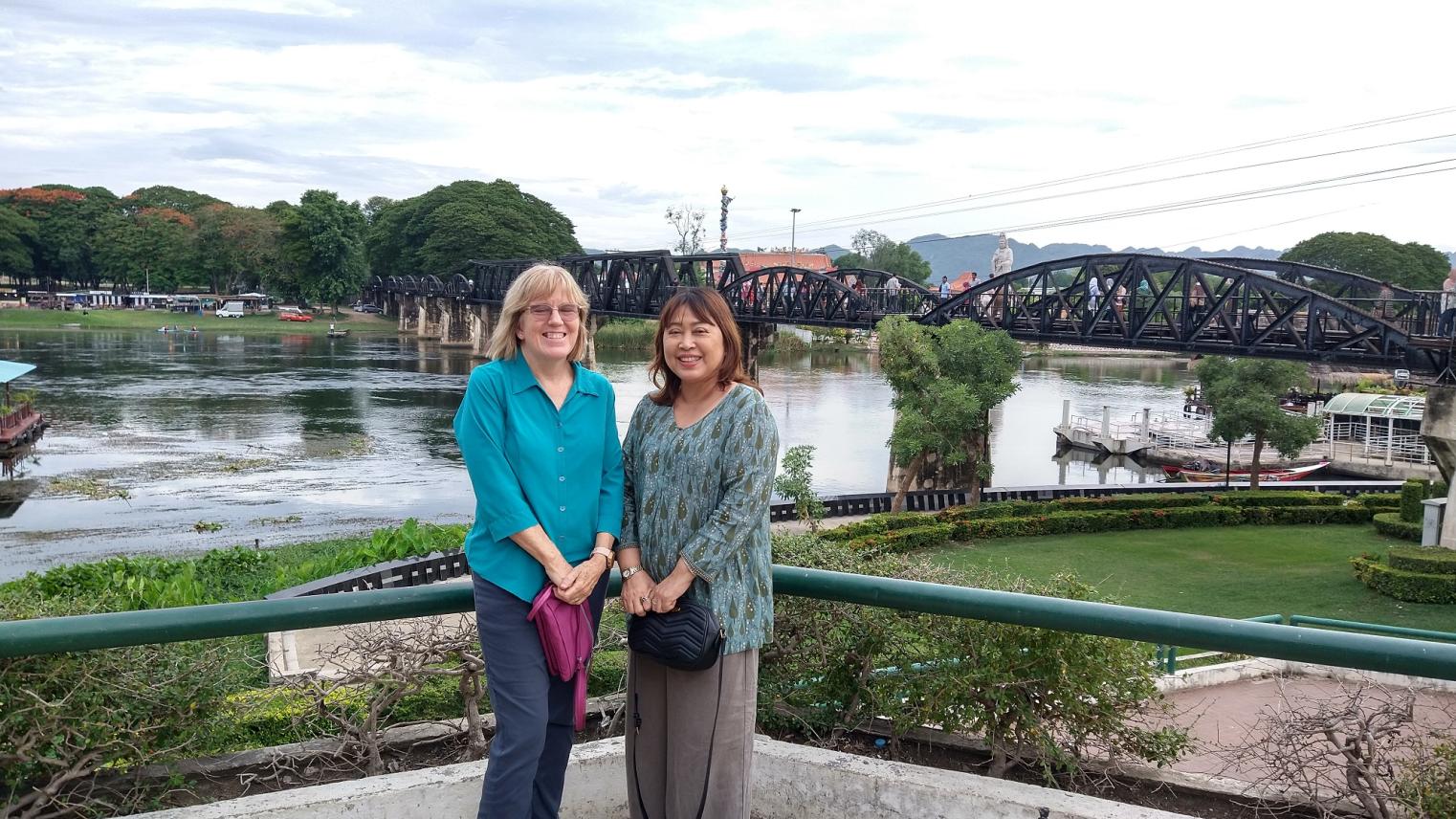Courage, Curiosity, and Scholarship

Some students arrive at university with a clear career path in mind. Others arrive with a suitcase full of questions and the quiet confidence to start again. For Dr Patricia Graves, recipient of the 2024 Myint Zan Scholarship, coming to ANU marked a new chapter in an already remarkable life.
After decades working in public health across Africa, Asia and the Pacific—combating mosquito-borne diseases like malaria and lymphatic filariasis—Patricia decided to step away from her consulting career and return to something that had always tugged at her: a love of history, language and the stories that shape us.
“I’ve always been curious about the past,” she says, “especially my grandfather’s experiences in Japan and IndoChina. I wanted to understand more—not just about him, but the broader cultural and historical context he was part of.” “Having worked extensively in PNG and the Pacific, I wanted to know how and when human migration brought their parasites, as well as mosquitoes, to the region.”
That search led Patricia to ANU, where she is now pursuing a Masters in Asian and Pacific Studies, which spans the breadth and depth of the region’s history, language, culture and linguistics. “The beauty of an ANU degree is that I can bring together all these different threads— history, international development, language—in one place.”
Receiving the Myint Zan Scholarship was both a surprise and a source of grounding. “It gave me the ability to spend more time in Canberra—more stability—and it also felt meaningful, because I had worked in Myanmar during my public health career. Learning about Professor Myint Zan and his mother, who was a pioneering doctor, added another layer of connection.”
Patricia admits the transition from science to the humanities has not been without its challenges. “The breadth and depth of knowledge at ANU is mind-boggling,” she laughs. “It’s humbling, but it’s also motivating. You realise how much there is to learn—and how much you don’t know. The ANU library staff have been unfailingly helpful in finding texts and navigating online resources. “It has also been so inspiring to meet so many young, bright students from different walks of life.”
Despite being modest about her own achievements, Patricia’s commitment to learning and her respect for thoughtful scholarship shine through. She reflects appreciatively about courses taught by CHL academics such as Simon Avenell, Matthew Galway and Deepak Nair. “The way they incorporated culture, fiction, and film—it changed my perspective. The history wasn’t filtered through a Western lens. That was a real eye-opener.”
Linguistics has been another unexpected joy. “I’ve loved exploring different languages and research methods,” she says, naming Dr Bethwyn Evans and Dr Danielle Barth as key influences. “That’s why this department is so brilliant.”
Though Patricia is realistic about the limits of time and language acquisition—“I’m not sure I’ll ever know enough Japanese to do all I want to do!”—her curiosity has not dimmed. “The instructors at the Japanese language program at CHL deserve a special shout-out for their patience and insightful approach to their craft.” She still dreams of visiting Japan, furthering her research, and perhaps writing that long-imagined book tracing family and historical memory.
To fellow students and scholarship supporters, Patricia offers quiet but powerful encouragement: “Be confident. Don’t be intimidated. Try to help one another—and remember, learning is more than grades. Sometimes the people most deserving of support are the ones working hardest just to be here.”